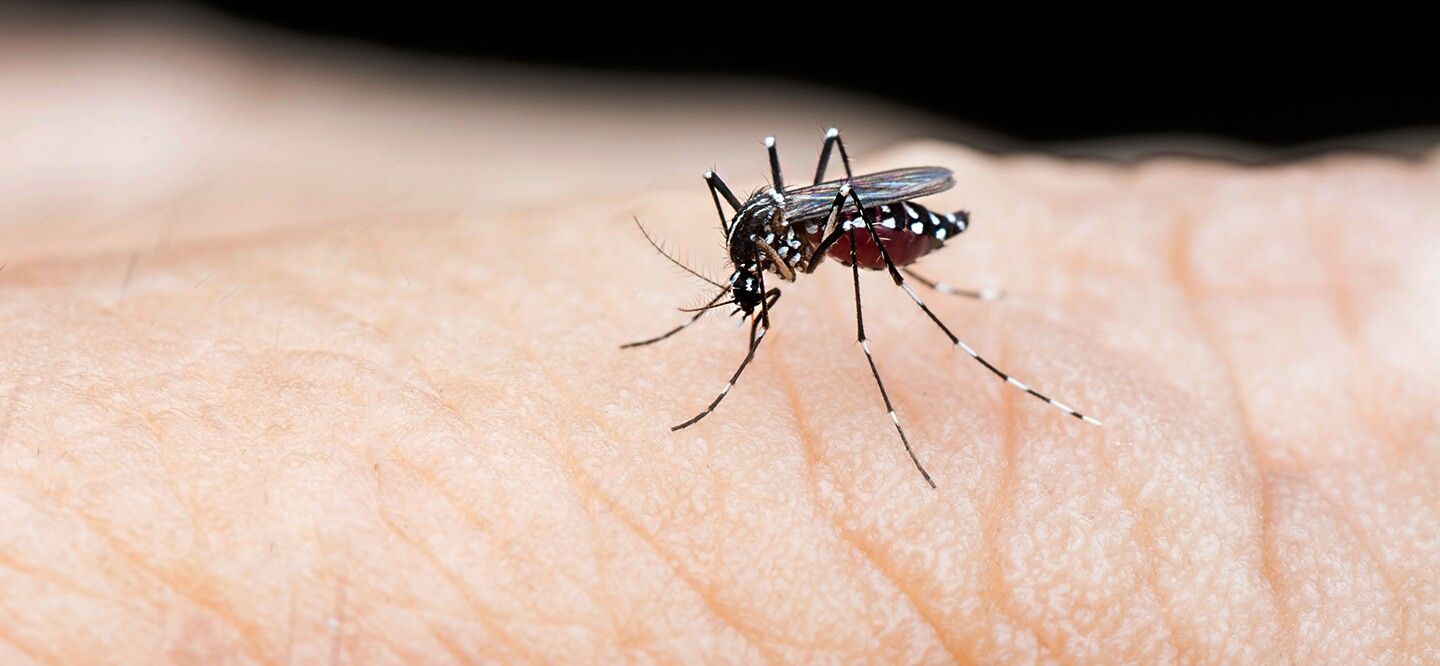
July 24, 2023
Dengue Fever and Monsoon Season: Keeping Your Child Safe
Hello from Hope Children's Hospital, Hyderabad! As we remain committed to the health and safety of your children, today we address a health concern particularly relevant during our monsoon season - dengue fever.
Dengue fever is a mosquito-borne disease prevalent in tropical and subtropical regions. It's caused by the dengue virus, transmitted to humans through the bite of an infected Aedes mosquito. Dengue fever often escalates during the monsoon season due to the increase in mosquito breeding sites.
Symptoms of dengue fever may include high fever, severe headache, pain behind the eyes, joint and muscle pain, rash, and mild bleeding. In severe cases, it can progress to dengue hemorrhagic fever, which can be life-threatening.
As parents, the thought of your child contracting dengue can be daunting, but there are several measures you can take to protect them:
1. *Avoid Mosquito Breeding Sites*: Mosquitoes breed in standing water. Regularly check and remove stagnant water from flower pots, buckets, and other containers, especially after rainfall.
2. *Use Insect Repellent*: Use a child-safe insect repellent on your child's skin and clothing. Apply it as directed on the product label.
3. *Dress Appropriately*: Dress your child in long-sleeved shirts and long pants, especially during early morning and late afternoon when dengue mosquitoes are most active.
4. *Install Window and Door Screens*: These can help keep mosquitoes out of your home.
5. *Use Mosquito Nets*: If your child sleeps during the day, consider using mosquito nets to protect them from mosquito bites.
If your child develops a high fever and exhibits other symptoms of dengue, seek medical attention immediately. Timely diagnosis and treatment can significantly improve the outcome.
At Hope Children's Hospital, we understand your concerns and are here to help. Our pediatricians and infectious disease specialists are well equipped to handle such situations and provide the necessary treatment.
Remember, prevention is always better than cure. Reach out to us at Hope Children's Hospital for any questions or guidance - your trusted partner in keeping your child safe during the monsoon season.
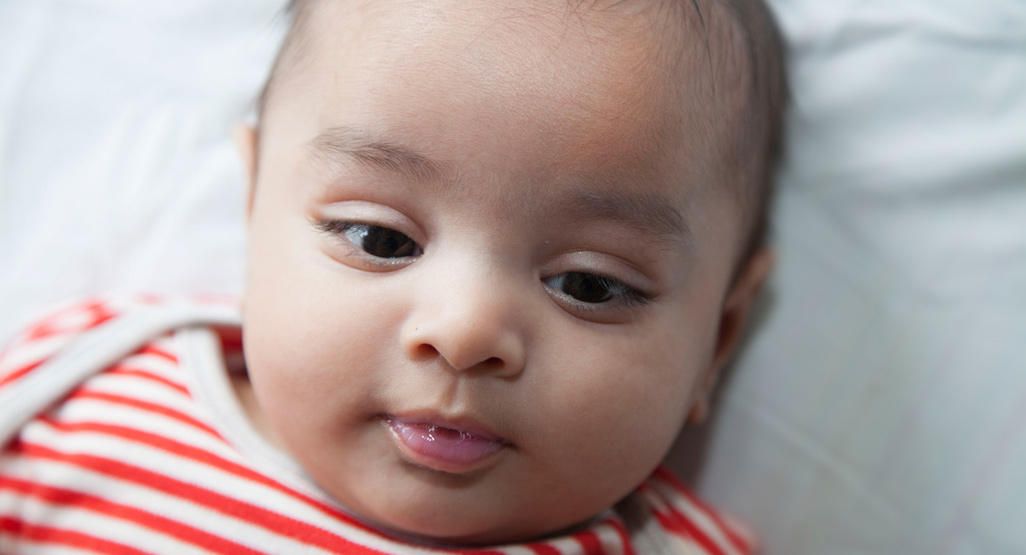
July 19, 2023
From Tiny Beginnings: Unfolding Milestones in the First Two Years of Life
Greetings from Hope Children's Hospital, Hyderabad! As a beacon of child healthcare, we pride ourselves on nurturing life right from its inception. Today, we will shed light on one of the most captivating aspects of parenthood - tracking your little one's developmental milestones in their first two years.
Infants grow at a rapid pace, and every blink seems to unveil a new facet of their development. In this exhilarating journey of growth and discovery, it's important for parents to know the key developmental milestones to look for.
During the first three months, your infant is becoming aware of their surroundings. Look for milestones like recognizing faces, smiling back when you smile, following moving objects with their eyes, and making cooing sounds. Their motor skills start developing too, as they begin to hold their head up, open and shut their hands, bring their hands to their mouth, and perhaps even grasp a toy.
Between three to six months, your baby will start rolling over in both directions. They will babble and laugh, expressing their joy with their entire body. Their vision sharpens, allowing them to see across the room, and they will recognize familiar objects and people, even at a distance.
From six to nine months, your baby will start sitting without support, and some might even start to stand while holding onto furniture. Watch as they respond to familiar sounds and express emotions like joy and anger. They'll begin to understand the concept of object permanence – the understanding that objects still exist even when they can't be seen.
As they approach their first birthday, they will start to explore their surroundings more actively. They might be crawling, standing with support, and might take those delightful first steps. Babies at this stage enjoy interactive games like peek-a-boo, understand simple commands, and could start saying simple words like "mama" or "dada".
From 12-24 months, your toddler's world is expanding at a fascinating pace. They will learn to walk, run, and start climbing stairs. Their fine motor skills improve, enabling them to eat with a spoon, build a tower of blocks, and turn the pages of a book. Their vocabulary expands, and by two years, they might be speaking in simple sentences. Socially, they'll begin to imitate others, express a wide range of emotions, and might even start showing signs of independence.
Remember, all children are unique and will achieve these milestones at their own pace. Regular pediatric check-ups are crucial to ensure your child is progressing healthily and to address any concerns. At Hope Children's Hospital, we are your partners in this beautiful journey, providing world-class healthcare services and support every step of the way.
We look forward to watching your little ones grow and supporting you as you navigate the exciting world of parenthood. After all, nothing compares to the joy of watching your baby discover the world for the first time.
Here's to cherishing every moment of your child's journey of growth and exploration. For any health-related queries or concerns, please reach out to us at Hope Children's Hospital, your trusted companion in your child's healthcare journey.
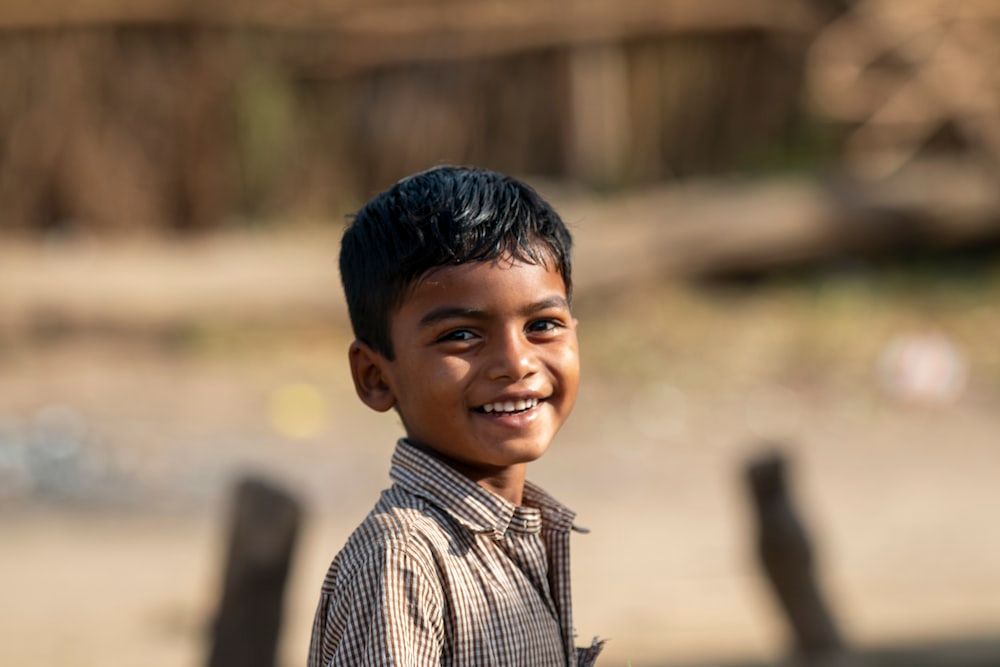
July 13, 2023
Leaping into the Lively Years: Developmental Milestones for 3-5 Year Olds
Greetings from Hope Children's Hospital, Hyderabad! We continue our journey of sharing insights on your child's development, moving into the bustling, active, and curious world of 3 to 5 year olds.
These years are characterized by significant growth physically, emotionally, and cognitively, with children becoming more independent, imaginative, and social. Let's take a look at some key milestones to anticipate during this vibrant period of your child's life.
Physical milestones at this stage are centered around the refinement of motor skills. By age three, your child will likely be running, climbing, and kicking a ball with increased coordination. They'll be able to dress and undress themselves, handle toys with buttons and moving parts, and use eating utensils more efficiently.
By age four, look for better control and coordination, as they start to hop on one foot, catch a bounced ball, and even ride a tricycle. As they turn five, they'll likely be able to stand on one foot for ten seconds or longer, perform somersaults, and might even start learning to swim or ride a bike.
Cognitive development during this phase is quite exhilarating. Your child's curiosity will drive them to ask a lot of questions, and they'll begin to understand the concept of time and the order of daily routines. They'll be able to correctly name familiar colors, play make-believe with dolls, animals, and people, and by five, they might be able to count ten or more things and print some letters or numbers.
Language development also accelerates during these years. Three-year-olds can usually speak in sentences of 4-5 words and tell stories. By four, they should be speaking in complete sentences, telling longer stories, and using future tense. Five-year-olds will understand rhymes, can speak clearly, and will begin to grasp basic grammar.
Social and emotional development is another key area during this period. Your child will become more cooperative with peers, start to understand the concept of sharing, and show increasing independence. They'll begin to distinguish between real and make-believe, show more empathy towards friends, and will start to understand and respect rules.
The 3-5 age span is indeed a dynamic period filled with leaps in development. Each child is unique and will navigate these milestones at their own pace. It's important to encourage their curiosity, creativity, and physical activity while providing a supportive, loving, and nurturing environment.
At Hope Children's Hospital, we're here to assist you with any queries or concerns regarding your child's growth. Our experts provide comprehensive pediatric care tailored to meet the unique needs of each child, ensuring they thrive during these crucial years.
Navigating parenthood is a rewarding, albeit challenging, journey. But remember, you're not alone. We're with you every step of the way, helping you raise happy, healthy, and confident children. For all your child's healthcare needs, trust in Hope Children's Hospital, where every child's health and well-being is our priority.
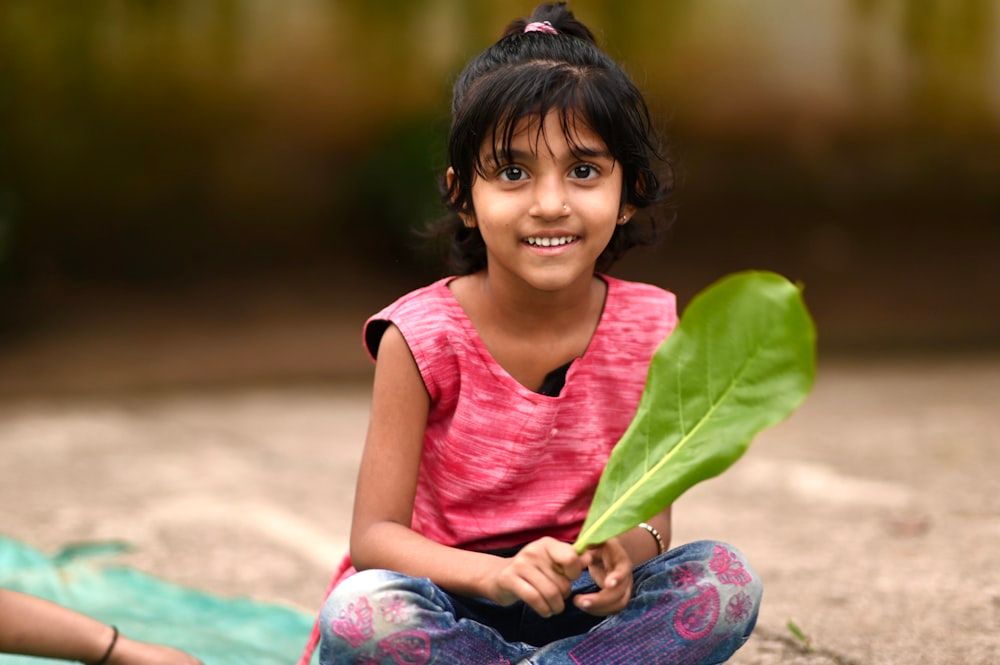
July 13, 2023
The Wondrous Years: Navigating Developmental Milestones for 5-9 Year Olds
Greetings from Hope Children's Hospital, Hyderabad! Continuing our series on child development, we now delve into the intriguing stage of 5-9 year olds. This phase is characterized by increasing independence, development of social skills, cognitive advancements, and significant physical growth.
From mastering shoelaces to expanding their vocabulary, let's explore some important milestones to watch for during these transformative years.
Physically, your child is in constant motion. Five-year-olds are generally adept at hopping, swinging, climbing, and might even be ready to ride a bicycle with training wheels. As they grow, their motor skills become even more refined, enabling them to skip, balance on one foot, and engage in more organized sports activities.
Cognitive development takes a significant leap during these years. Your child is likely to show great interest in understanding the world around them. They'll learn to read, write, and do simple math problems. They'll grasp the concept of time, understanding the days, months, and seasons. By nine, they'll be able to read and comprehend age-appropriate books, do complex puzzles, and demonstrate improved problem-solving skills.
In terms of language development, your child's vocabulary will multiply impressively. They'll be able to express complex ideas, understand and use comparative words, and by the time they're nine, they should be able to participate effectively in detailed and sophisticated conversations.
Social and emotional development during this stage is crucial. Children begin to form stronger and more complex friendships and social networks. They start understanding others' perspectives and exhibit increased empathy. They will also develop a clearer sense of their identity, abilities, and interests.
It's important to note that development is not a race, and children reach these milestones at their own pace. Encourage their growth, provide opportunities for learning, and nurture their self-esteem.
At Hope Children's Hospital, we are committed to providing comprehensive pediatric care and helping you navigate the joys and challenges of these fascinating years. Our experts are always ready to address any concerns you may have regarding your child's development.
Remember, these are years when your child's curiosity knows no bounds, their skills multiply, and their personalities shine. So, enjoy these precious moments, be their biggest cheerleader, and guide them as they explore their expanding world.
For any healthcare needs or developmental concerns, please reach out to us at Hope Children's Hospital - your partner in nurturing your child's journey towards becoming confident, healthy, and empathetic individuals.

July 13, 2023
Unfolding Adolescence: Developmental Milestones for 13-18 Year Olds
Greetings from Hope Children's Hospital, Hyderabad! As we continue our journey, we now step into the vibrant, challenging, and transformative years of 13-18. This period, known as adolescence, is a bridge between childhood and adulthood and is marked by substantial physical, emotional, cognitive, and social growth.
Physically, teenagers continue to develop. Girls are likely near physical maturity, while boys might continue to grow taller, develop more muscle, and see facial hair growth. It's crucial to maintain healthy lifestyle habits during this stage, as patterns established now often carry into adulthood.
Cognitively, teenagers develop advanced reasoning skills, abstract thinking abilities, and the capacity to think about future possibilities. They'll be able to handle complex academic concepts, make decisions considering various factors, and may start showing interest in career paths.
Language development in this stage involves more sophisticated conversation skills, comprehension of nuanced and abstract concepts, and proficiency in presenting logical arguments in discussions or written form.
Socially and emotionally, teenagers place great importance on peer relationships. They grapple with questions of identity, explore their sexuality, and become increasingly independent. They may show strong interest in societal and political issues and often develop a more sophisticated sense of right and wrong.
The 13-18 age phase can be an exciting but turbulent time. Encourage open communication, be patient, support their burgeoning independence, and guide them as they navigate these years.
At Hope Children's Hospital, we are here to support your family during these transformative years. Our team of pediatric professionals is committed to addressing any health concerns and guiding you in promoting your child's well-being.
We encourage you to savor these rapidly changing years and support your teenager as they step into the world with newfound confidence. Reach out to us at Hope Children's Hospital for any healthcare needs - your trusted partner in nurturing your child's journey into adulthood.
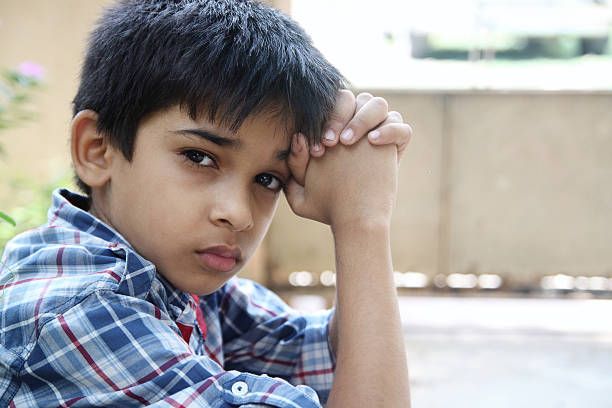
July 13, 2023
Promoting Good Mental Health in Children and Adolescents
Greetings from Hope Children's Hospital, Hyderabad! As we continue to support the health and well-being of your children, today, we shed light on a topic of paramount importance yet often overlooked - mental health in children and adolescents.
Mental health is as crucial as physical health in shaping your child's overall well-being. Unfortunately, the societal stigma around mental health often makes it less discussed, but our children's emotional and psychological wellness deserves our attention and care.
Mental health challenges in children might present as persistent sadness, anxiety, changes in sleep or appetite, difficulty concentrating, or withdrawal from activities and social interactions. It's essential to remember that occasional mood swings or worry are part of normal development. However, persistent symptoms that interfere with your child's daily life warrant professional help.
Here are some ways to foster good mental health in your child:
Open Communication: Encourage your child to express their feelings. Let them know it's okay to talk about their thoughts, fears, and anxieties.
Quality Time: Spend regular quality time with your child. Shared activities can strengthen your bond and provide opportunities for conversation.
Healthy Lifestyle: Regular physical activity, a balanced diet, and adequate sleep are integral to mental health.
Teach Coping Skills: Help your child develop strategies to handle stress, such as deep breathing, meditation, or engaging in a hobby.
Professional Help: If you notice signs of mental health struggles in your child, reach out to a mental health professional. Early intervention is key to effective management.
At Hope Children's Hospital, we believe in the holistic wellness of your child, encompassing both physical and mental health. Our team of pediatric mental health professionals is here to guide you and your child in fostering and maintaining mental health.
Remember, mental health is not a destination, but a journey of ongoing self-care and awareness. Reach out to us at Hope Children's Hospital for any questions or assistance - your trusted partner in promoting good mental health in children and adolescents.
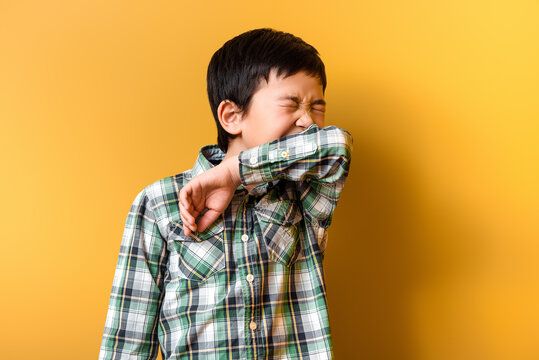
July 13, 2023
Understanding and Managing Common Allergies in Children
Greetings from Hope Children's Hospital, Hyderabad! One of our aims is to help parents navigate the sometimes complex health challenges their children might face. Today, we're focusing on a common but often misunderstood area of child health - allergies.
Allergies are immune responses to substances that are usually harmless but can cause symptoms in those who are allergic. These allergens may include food, insect stings, dust, pet dander, and more. In children, the most common types of allergies are food allergies, hay fever, asthma, and eczema.
The first step in managing allergies is recognizing the signs. Symptoms may include:
Sneezing, runny nose, or itchy, watery eyes
Skin rash or hives
Swelling of lips, tongue, or face
Wheezing or difficulty breathing
Stomach pain, vomiting, or diarrhea after eating certain foods
If your child exhibits these symptoms, especially repeatedly or after exposure to specific substances, an allergy might be at play.
It's essential to seek medical advice if you suspect your child has an allergy. Proper diagnosis often involves allergy testing, which could include skin prick tests, blood tests, or food elimination diets under medical supervision.
Once diagnosed, effective management involves a combination of avoiding known allergens, educating your child about their allergies, having a clear action plan in case of exposure, and medication as recommended by your healthcare provider.
Managing allergies also means preparing your child's environment. For instance, if your child is allergic to dust mites, regular cleaning, using allergen-proof bed covers, and reducing indoor humidity can help. For food allergies, careful reading of food labels and clear communication about your child's allergies at school and social events are key.
At Hope Children's Hospital, our team of allergists and pediatricians is here to guide you through understanding and managing your child's allergies. Allergies can be challenging, but with the right knowledge and strategies, they can be effectively managed.
Remember, you're not alone in this journey. Reach out to us at Hope Children's Hospital for any questions or advice - your trusted partner in understanding and managing your child's allergies.

July 13, 2023
Navigating the Turbulent Tides: Developmental Milestones for 10-13 Year Olds
Greetings from Hope Children's Hospital, Hyderabad! As we guide you through the riveting journey of child development, we now turn our attention to the 10-13 age bracket. Known as 'tweens', this stage ushers in the onset of adolescence and is marked by significant physical, cognitive, emotional, and social changes.
Physically, the most noticeable change during this period is the onset of puberty. Girls usually begin earlier than boys, with signs including breast development and the start of menstruation. Boys will experience growth of testicles, sprouting of facial hair, and voice deepening.
Cognitively, 'tweens' develop the capacity for abstract and complex thinking. They begin to reason logically and solve more complicated problems. They'll start understanding metaphors, sarcasm, and complex instructions. Their schoolwork will involve more critical thinking and problem-solving tasks.
Language skills continue to develop, with children being able to articulate their thoughts clearly, understand advanced texts, and write detailed essays. Their vocabulary expands considerably during these years.
Socially and emotionally, your child may become more peer-oriented. Friendships become more complex and influential, and they start showing an increased interest in societal issues and causes. You may notice mood swings and a greater need for privacy, as they grapple with their identity and self-image.
The 10-13 age span is a period of rapid change and growth. It is essential to maintain open lines of communication, encourage their independence while setting clear boundaries, and offer consistent emotional support.

July 13, 2023
The Impact of Screen Time on Children's Health: Finding the Balance
Greetings from Hope Children's Hospital, Hyderabad! In our ongoing quest to inform and support parents and caregivers, today we address an issue increasingly prevalent in our digital age - screen time and its impact on children's health.
In our tech-driven world, screens - be it televisions, computers, tablets, or smartphones - have become an integral part of children's lives. While technology can be a great tool for learning and entertainment, excessive screen time can have negative impacts on children's physical and mental health.
Excessive screen time is linked to problems such as obesity due to reduced physical activity, irregular sleep patterns, poorer academic performance, and issues with social skills. It can also expose children to inappropriate content and heighten the risk of developing myopia (nearsightedness).
So, how can we find a healthy balance?
Set clear limits: Establish daily or weekly screen time limits based on your child's age, individual needs, and your family's values.
Encourage physical activity: Regular physical exercise is crucial for children's health. Encourage outdoor play, enroll them in sports, or establish family exercise routines.
Promote screen-free zones and times: Make certain areas of your home, like the dining table or bedrooms, screen-free zones. Also, establish screen-free times, such as during meals and an hour before bedtime.
Be a role model: Children often imitate adult behaviors. Limit your own screen time and demonstrate the importance of engaging in other activities.
Quality over quantity: Not all screen time is created equal. Educational programs or apps can be beneficial. Encourage meaningful screen use and co-view when possible to enhance learning.
At Hope Children's Hospital, we understand the challenges in managing screen time in today's digital world. Our team of experts is here to guide and support you in fostering healthy digital habits in your children.
Remember, the goal isn't to eliminate screen time but to create a balanced digital diet. Reach out to us at Hope Children's Hospital for any queries or guidance - your trusted partner in nurturing your child's holistic well-being.
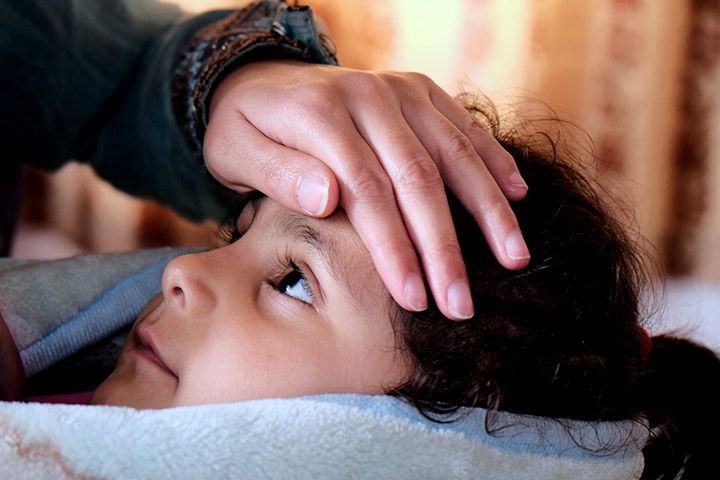
July 13, 2023
Safeguarding Little Warriors: Combating Malaria in Children
Greetings cherished parents and guardians! Here at Hope Children's Hospital, we believe in the importance of empowering our community with knowledge. Today, we're going to tackle a critical topic – preventing malaria in children. Malaria, a menacing mosquito-borne disease, can have severe consequences for the little ones. However, armed with the right information and strategies, we can shield them effectively. Here’s how:
1. Mosquito Netting: Your Child’s Knight in Shining Armor
Mosquito nets are a cornerstone in the battle against malaria. When selecting nets, consider long-lasting insecticidal nets (LLINs), which are treated with an insecticide proven to be formidable against mosquitoes. Ensure that your child sleeps under this protective shield every night.
2. Indoor Residual Spraying: Keep the Invaders at Bay
Indoor residual spraying is akin to building a fortress against mosquitoes. This involves applying insecticides to the interior walls and ceilings, which discourages mosquitoes from entering and settling inside. It’s imperative to have this performed by a professional and adhere to safety guidelines.
3. Dress Them Like a Superhero
Mosquitoes are partial to exposed skin. Equip your children with lightweight, long-sleeved shirts and long pants, especially during the early morning and evening hours when mosquitoes are most active. As an added safeguard, clothes can be treated with permethrin, an effective insect repellent.
4. Elixirs of Protection: Using Mosquito Repellents
Application of mosquito repellents on your child's skin can be a game-changer. Choose repellents containing DEET, Picaridin, or oil of lemon eucalyptus, and adhere strictly to the manufacturer’s guidelines, particularly for young children.
5. Drain Stagnant Water: Don’t Let Mosquitoes Settle Down
Mosquitoes thrive in stagnant water. By draining any standing water around your home, such as in flower pots, gutters, and buckets, you can disrupt their breeding grounds and reduce their population.
6. Health Checks and Vaccination
Keep a close eye on your child’s health. If they display symptoms like fever, chills, or fatigue, seek medical advice immediately. Additionally, inquire about the malaria vaccine RTS,S, which has been shown to provide partial protection against malaria in children.
7. Educate and Engage
Educate your children about the importance of these preventive measures and make it engaging. Share stories or play games that involve superheroes fighting against mosquito villains, and how they can be superheroes too.
Through these vigilant steps, we can ensure our little ones remain guarded against malaria. At Hope Children's Hospital, we are committed to being partners in your child’s health. Don’t hesitate to reach out to us for more information or support in keeping your family malaria-free.
Stay Tuned
Get health tips and parenting advice from HOPE Children's experts sent straight to your inbox.

